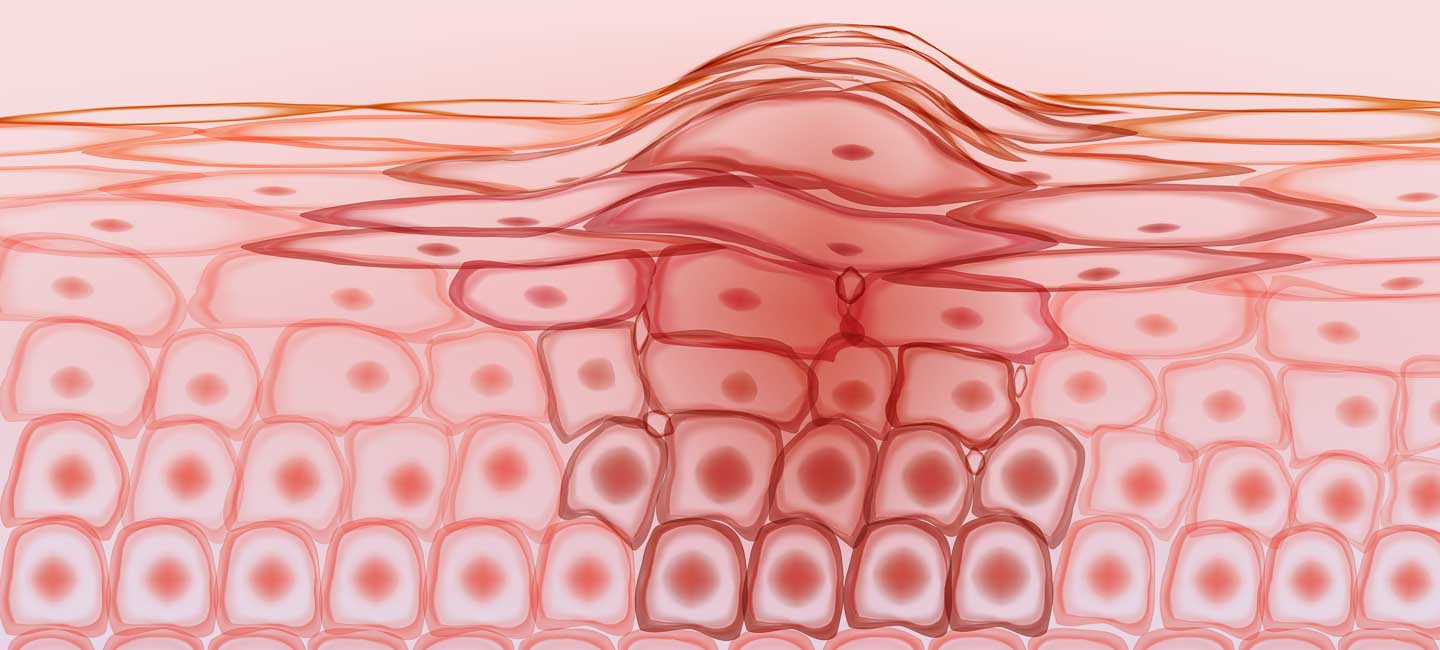
Revolutionizing Treatment for Node-Positive Melanoma: Neoadjuvant Therapy
Cancer treatment is constantly evolving, and now, a groundbreaking approach is reshaping the way we combat node-positive melanoma. Neoadjuvant therapy is advancing the fight against this aggressive form of skin cancer, creating a new standard of care.
At Moffitt Cancer Center, we are at the forefront of this revolutionary shift, witnessing firsthand how administering treatment before surgery can improve outcomes and open the doors to more personalized and effective treatment plans. Our Cutaneous Oncology specialists work closely with referring providers, fostering trust and collaboration to ensure seamless, comprehensive care.
What is Neoadjuvant Therapy?
Neoadjuvant (preoperative treatment) therapy involves administering systemic drug treatments before surgery, a different approach than the current standard of care for node-positive melanoma patients in which surgery is performed first, followed by adjuvant (postoperative treatment) therapy.
Immunotherapies such as immune checkpoint inhibitors have long been part of the standard treatment protocols for metastatic disease, leading to long-term survival in approximately half of patients treated with it. Because of these results and new data suggesting a more proactive approach via neoadjuvant therapy, immunotherapies are being utilized earlier in the treatment process to improve cure rates.
Traditionally, patients with node-positive melanoma undergo surgical tumor removal followed by twelve months of adjuvant therapy. However, this approach has several limitations:
- Approximately 30% of patients with stage 3 disease experience recurrence within two years of completing adjuvant therapy, while approximately 15-20% experience rapid postsurgical recurrence, before adjuvant therapy can even begin.
- Adjuvant therapy lasts up to a year, which involves inconvenience, expenses and patient stress.
- We lack established biomarkers to determine which patients will benefit the most from adjuvant therapy, potentially leading to over- or under-treatment.
- We also lack established biomarkers to assess the risk of experiencing irreversible adverse events.
Studies now show that neoadjuvant therapy addresses many of these challenges, offering more tailored treatment options that can be especially effective in high-risk cases such as node-positive disease. With this new approach, therapy is administered for several weeks or months before the surgical removal of all known melanoma.

It provides oncologists with a unique opportunity to visually and pathologically evaluate the patient’s response to therapy, offering invaluable insights that allow for the personalization of further treatment.
Those who respond favorably can often get by with less local treatment (smaller surgeries or no need for postoperative radiation), while non-responders may have the opportunity to switch to postoperative treatment using alternatives that might be more effective.
By treating the tumor before surgery, it begins to target occult metastatic disease sooner and potentially serve to avoid unnecessary surgery for patients with rapid metastasis development.
Evidence Supporting Neoadjuvant Therapy
Recent clinical trials have demonstrated superior outcomes for patients treated with neoadjuvant therapy compared to those treated with surgery first, creating a strong case for this new approach as a standard treatment option for patients with resectable stage III melanoma. Studies also show that patients who achieve a pathologic complete response (pCR) after neoadjuvant therapy often do extremely well without any postoperative treatment, and in some cases after less extensive surgery than would otherwise be required.
Compelling data from the latest clinical investigations include:
SWOG S1801 Phase 2 Trial: This randomized study reported an improvement in two-year event-free survival for patients receiving neoadjuvant plus adjuvant pembrolizumab immunotherapy compared to adjuvant pembrolizumab treatment alone in resectable stage IIIB-D/V melanoma. This study was particularly influential in that the only difference between the two study arms was the timing of the first three doses of immunotherapy – giving those three pembrolizumab doses before surgery led to dramatic improvements in outcome without a significant risk of tumors growing large enough to become unresectable during the preoperative treatment period.
NADINA Trial: Results showed a 27% absolute reduction in the risk of disease recurrence within the first twelve months when using neoadjuvant ipilimumab plus nivolumab immunotherapy. 83% of patients receiving neoadjuvant treatment remained event-free after one year, compared to 57% in the adjuvant-only group. It also showed that 59% of patients who received neoadjuvant treatment had their tumors completely or nearly completely eliminated when the surgical specimens were evaluated by the pathologist, and these patients did not require additional treatment. Notably, it reduced the treatment time from twelve months to six weeks for patients with major pathologic responses, allowing those patients to save on treatment costs significantly.
“These trial results show that the timing of administration of an immune checkpoint inhibitor relative to surgery can have a large effect on patient outcomes. These new landmark data are practice-changing and will impact how clinicians treat patients with advanced melanoma that can be surgically removed,” said Vernon Sondak, SWOG S1801 Phase 2 Trial co-author and chair of Moffitt’s Department of Cutaneous Oncology. “The next step is to use neoadjuvant therapy to lessen the amount of surgery patients might need, and continue to refine when and how best to shorten the length of drug treatment patients might otherwise require. We’re working on precisely that right now.”
Why Neoadjuvant Therapy for Node-Positive Melanoma?
Neoadjuvant therapy offers unique advantages for patients with node-positive melanoma, addressing challenges in the current standard of care. Here's why this approach is gaining traction:
- Evaluating Pathologic Response: Neoadjuvant therapy allows us to assess the tumor's responsiveness to treatment before surgery. Achieving a complete or near-complete pathologic response can result in lower recurrence risks and potentially ultimately higher survival rates.
- Real-Time Biomarker Evaluation: Treating patients before surgery allows us to gather critical biomarker data and tailor subsequent treatment with greater precision. This personalized approach is key in an era where genomic insights and targeted therapies increasingly drive melanoma care.
- Surgical Benefits: By shrinking tumors preoperatively, neoadjuvant therapy can sometimes reduce the extent of surgery required, preserving more tissue and enhancing patients' quality of life. This could mean less extensive lymph node dissections and, consequently, fewer complications for node-positive patients.
- Early Systemic Control: Initiating therapy earlier in treatment may also help control micrometastatic disease, address the cancer systemically while the tumor has intact blood and lymphatic supply, and induce a stronger immune response.
Looking Ahead: A New Era in Melanoma Treatment
The introduction of neoadjuvant therapy marks a significant advancement in treating node-positive melanoma. This approach offers real-time assessment of treatment efficacy and the potential for better survival outcomes. It creates additional opportunities for more personalized, effective treatment plans and the possibility of shorter treatment durations.
As we continue researching and advancing melanoma treatment, key focuses will include balancing the toxicity and benefits of immunotherapy and developing other breakthrough therapies, like Lifileucel, which was FDA-approved in February 2024, for patients in whom neoadjuvant or adjuvant therapy is not effective.
As partners in care, we value collaborative relationships with referring providers. We invite you to explore how neoadjuvant therapy could benefit your patients and reach out with any questions or referrals.
Together, we are revolutionizing treatment and improving the outlook for patients with node-positive melanoma.
If you’d like to refer a patient to Moffitt for melanoma treatment, complete our online form or contact a physician liaison for assistance. As part of our efforts to shorten referral times as much as possible, online referrals are normally responded to within 24 - 48 hours.
